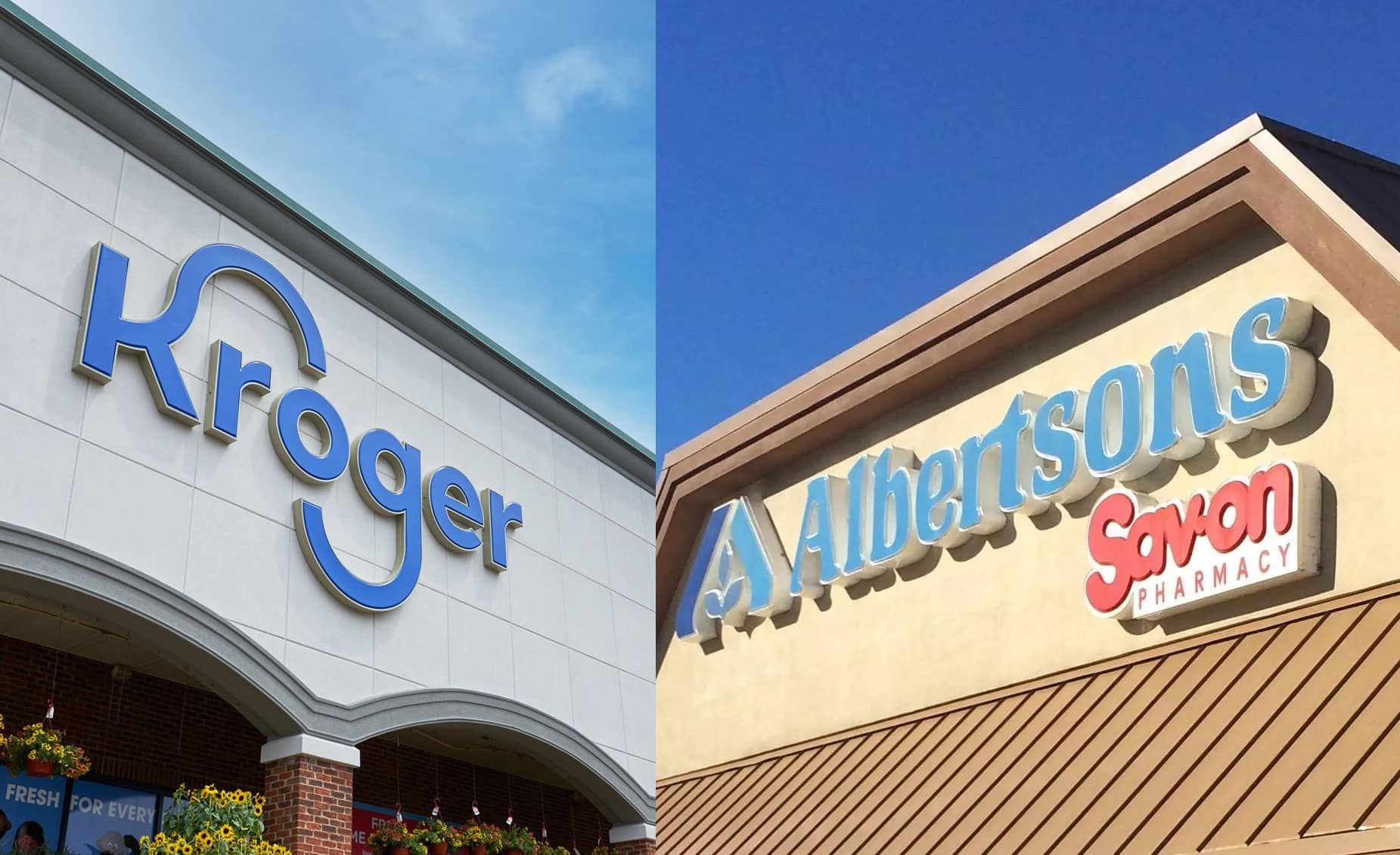
Would you like your grocery prices to be lower, or higher? Do you prefer more choices, or fewer? Both are either-or propositions, yet you might think both could come true, depending on who’s doing the telling.
Seven months after Kroger announced its planned purchase of Albertsons, which would combine the largest and second-largest traditional grocery chains in the country, federal regulators are still mulling over whether to grant their approval. But opponents and proponents of the planned deal have been keeping busy appealing to the court of public opinion.
The latest salvo to be fired comes from the consumer advocacy group The Center for Science in the Public Interest. In a letter to members of the Federal Trade Commission released yesterday, the group called on the agency to block the merger, arguing it would “reduce food access by raising prices and shuttering stores.”
A combined Kroger-Albertsons “would control 22% of the food retail market,” their letter reads. Together with Walmart, the two companies would then “control over 55% of the national food retail market.” The resulting lack of choice and competition will “harm consumers through an anticompetitive food retail market with fewer stores, higher food prices, and consolidated food manufacturer and processor control.”
The public critique of the deal comes days after the latest court filings in a consumer lawsuit seeking to block the merger. More than two dozen plaintiffs from nearly a dozen states sued Kroger and Albertsons back in February. In their response to the lawsuit filed last month, Kroger and Albertsons argued that the FTC review of the proposed deal was already well underway and should be allowed to play out. Countering that, the plaintiffs argued last week that “there is no legitimate reason” for them to “wait until the government acts” before registering their own opposition. A retailer like Walmart was able to achieve its market-leading position organically, because the law “favors internal expansion and competition over combination,” the plaintiffs pointed out. Kroger and Albertsons, in contrast, grew through a series of acquisitions over the years. “And now, by this mega merger,” they “seek to create a dominion that bestrides the entire country.”
In an interview with Bloomberg last week, Kroger CEO Rodney McMullen vowed to sue if the FTC decides to block the deal. Those comments came weeks after a less-combative attempt to alleviate consumer concerns, in the form of an opinion piece published in Kroger’s hometown Cincinnati Enquirer.
“Since we announced the merger, we have seen many misconceptions about it,” reads the editorial, bylined by McMullen and Albertsons CEO Vivek Sankaran. Stores may have to be sold as part of the deal, but the CEOs pledged that stores will not close, nor will frontline workers lose their jobs. And they promised that the combined company “will be even more customer focused. We will offer lower prices and more choices on products customers want, need and love.”
The CSPI is skeptical of those pledges. “There is no evidence the projected efficiencies stemming from the merger” will result in a “pass-through of cost savings to consumers,” their letter to the FTC read.
“The proposed merger of Kroger and Albertsons will likely mean higher prices, fewer stores, and less competition,” CSPI president Peter Lurie said in a statement. “It might be a good move for executives and shareholders, but the merger would be an economic blow to Americans” at a time when “food prices are higher than ever before.”
Walmart’s scale and purchasing power allows it to offer lower prices than many competitors. Kroger and Albertsons argue that, together, their scale and purchasing power could achieve the same results for shoppers. “We will build on our long track record of lowering prices and improving the customer experience,” they promise. “We plan to invest approximately $500 million to reduce prices for customers and $1.3 billion into Albertsons Companies stores to enhance the customer experience following the close of the transaction.”
So it all leaves us back where we started – prices may be lower, or they may end up higher. You may have more choices at the grocery store, or you may end up with fewer. As more groups weigh in and publicly take sides, it will ultimately be up to federal regulators to determine whether the merger becomes reality – and which of the predicted extremes becomes reality in the process.
Image sources: Kroger/Albertsons











I am NOT in favor of this merger! Too many small businesses have been forced out because of big pig gluttony. Regardless of the “reasons” which are manufactured to support this merger, the American people are fed up with being treated as idiots and we DO understand the gluttony behind it.